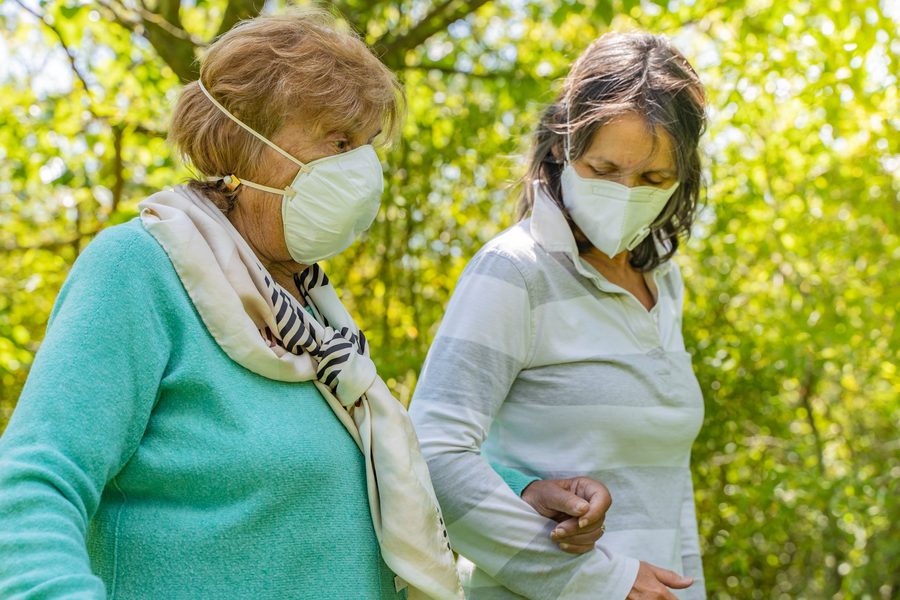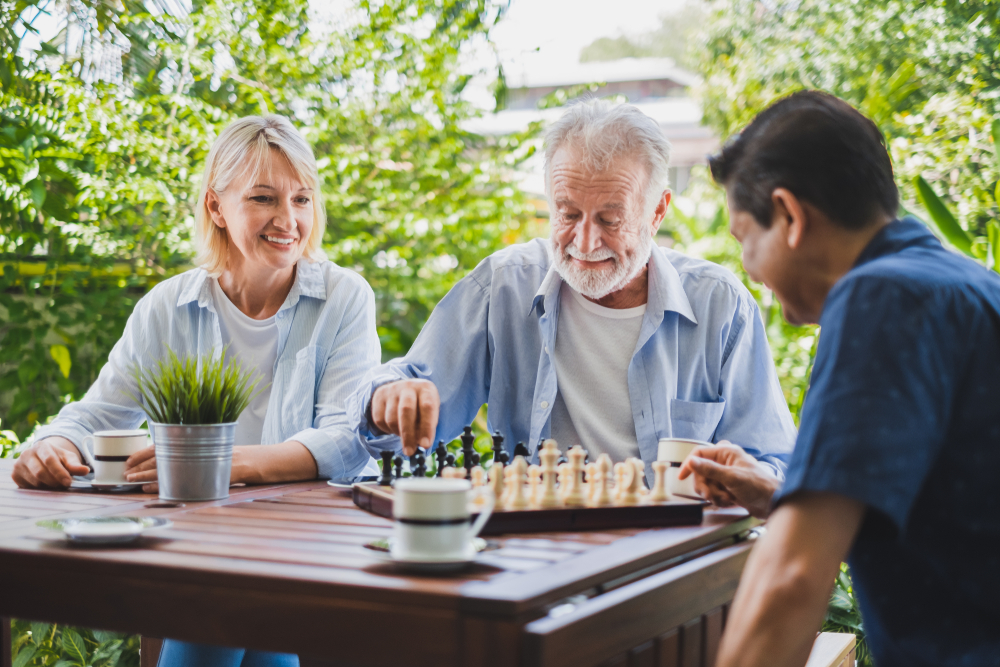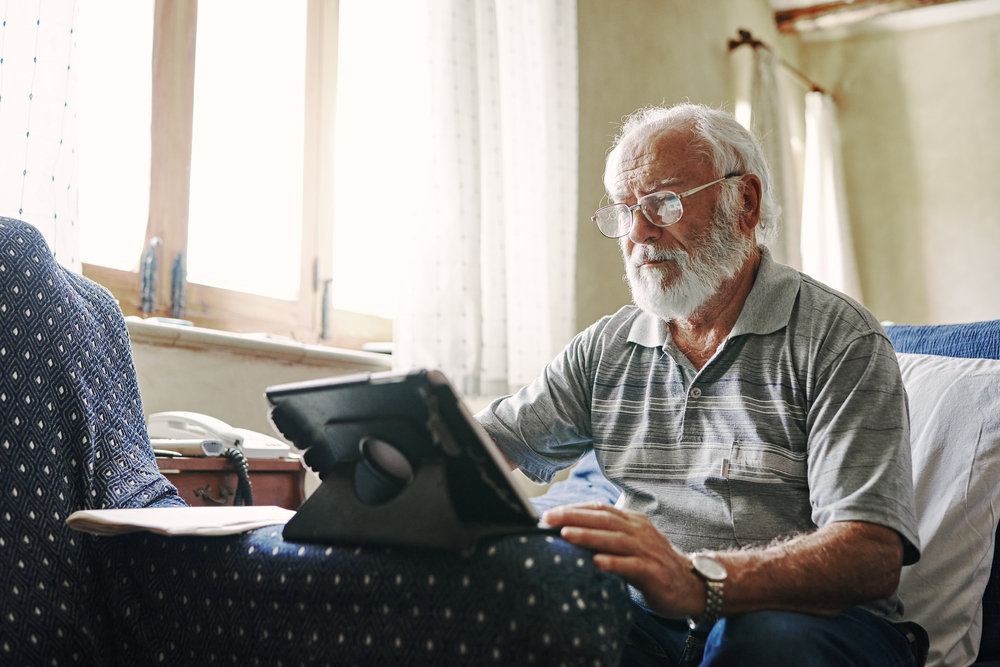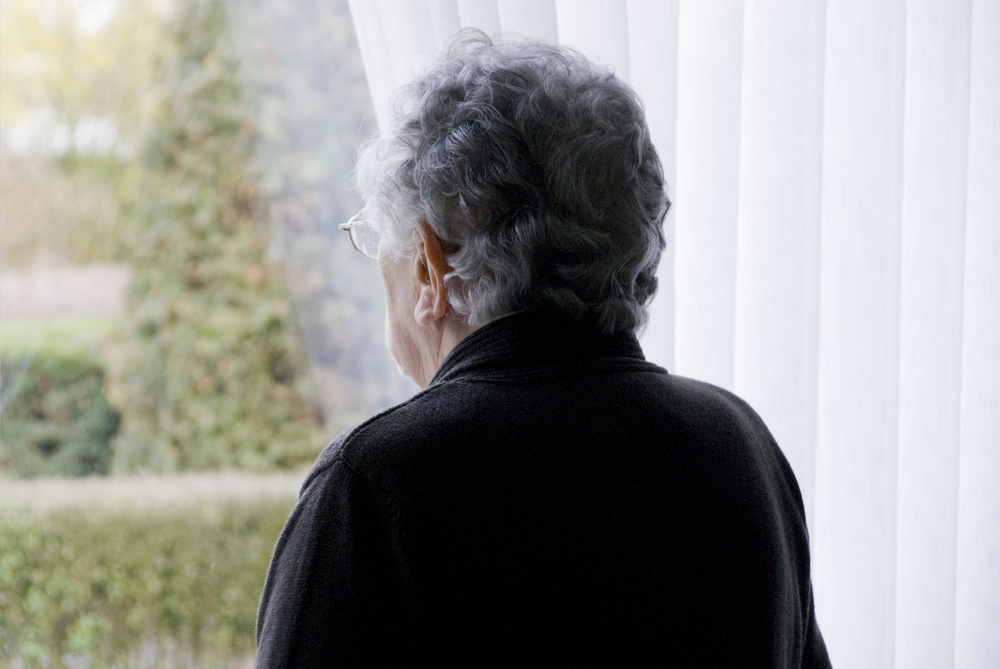
The Best Way to Inform Older People About COVID-19

We are experiencing very challenging times nowadays. With the COVID-19 pandemic continuing to spread every day, we have to make sure that we and our loved ones are well-educated and know the best course of action to combat this disease. One of the most vulnerable people to the virus are older people, and this is due to their decreased immune system that comes with their age, so they are more likely to contract illnesses and would be less equipped to fight against it.
This is why it is important that we properly inform our older loved ones and protect them from getting infected. And this might be a bit of a challenge, but there are several ways that we can effectively communicate the issue to them.

Nattakorn_Maneerat/Shutterstock
Older people are more vulnerable to the coronavirus since they have weaker immune systems
Find and Use Their Trusted Source of Information
If the advice comes from the elder people’s children, there is a chance that they might brush this off and say that they can still take care of themselves. Maybe they have close friends that they might feel more comfortable sharing their thoughts with and would tend to hear them out more. You could also look into their preferred news outlet and use information from there, they might feel more compelled to believe what the news is saying.
And if you find that the news source isn’t exactly showing the most accurate information, try to redirect them to more credible sources like websites of the CDC and World Health Organization to prevent them from being misinformed.

YossSabalet/Shutterstock
Try to give then reliable news sources to get information from
Approach Them By Asking Questions
It’s better to start by asking elderly people questions instead of instantly assuming facts about what they know. Ask them how much they know about the situation and if they are prepared for it. If they do not seem to have much knowledge about it, ease your thoughts into the conversation and explain how the virus could affect them using non-interrogating language.
You could also share your own plans on how you have been dealing with the situation to give them better insight, like getting supplies, avoiding physical contact and not going to crowded places, and preparing several weeks worth medication. You could even offer to deliver these supplies that they will be needing, expressing your concern is very essential.

Marlinde/Shutterstock
Gently ask them what they know about the situation
Be Aware of The Tone You Are Using
Even if it is an urgent matter, keep in mind that there is no need to be alarmed especially when we try to talk to our older loved ones. Try your best to give as much information as you can, and don’t make it feel like you are forcing it on them. This could potentially cause them to be defensive and reject your ideas, defeating the purpose of your conversation.
If even after all the talking, even after you did your best to make them understand how you are feeling, they still do not see things the same way as you, then it might be better to give them space and not force the conversation, because it could just end up damaging your relationship. Keep an eye on them still and maybe you might have the chance to talk again after a while.
More in Health & Well-being
-
`
Here’s Everything You Need to Know About Open Relationships
An open relationship is a consensual arrangement where partners agree to engage in romantic or sexual relationships with other people. Unlike...
June 6, 2024 -
`
Explore the Multifaceted Goals of Meditation
What is the goal of meditation? If you have ever found yourself asking this question, you are not alone. Meditation has...
May 31, 2024 -
`
When is National I Love You Day Celebrated? Mark Your Calendar
Life can get hectic, and sometimes amidst the daily grind, we forget to express our love and appreciation for the phenomenal...
May 23, 2024 -
`
When’s the Best Time of Day to Fish?
For any angler, a successful fishing trip hinges on several factors. But one of the most crucial elements is timing. Knowing...
May 14, 2024 -
`
What Mental Illness Does Britney Spears Have? Discovering the Answer
Britney Spears, a name that resonates with millions around the globe, goes far beyond the glitz and glamour of her stardom....
May 7, 2024 -
`
Here Are Some Easy Ways To Say No To Unrealistic Expectations In Your Relationship
If you are in a relationship, you should constantly work on improving it. Some early lovebirds fall in love too quickly...
May 3, 2024 -
`
Therapy? Medication? What Are the Treatments for PTSD
Post-Traumatic Stress Disorder (PTSD) is a common after-effect of traumatic events. It can be a debilitating condition, but the good news...
April 25, 2024 -
`
Courting vs Dating – Which Relationship Path is Right for You?
In today’s fast-paced world, the terms ‘courting’ and ‘dating’ often swirl around in conversations about relationships. While some people may use...
April 23, 2024 -
`
Essential Mexico Travel Tips for a Seamless Adventure
Mexico, a land of vibrant culture, breathtaking landscapes, and mouthwatering cuisine, beckons travelers from across the globe. But before you embark...
April 16, 2024















You must be logged in to post a comment Login